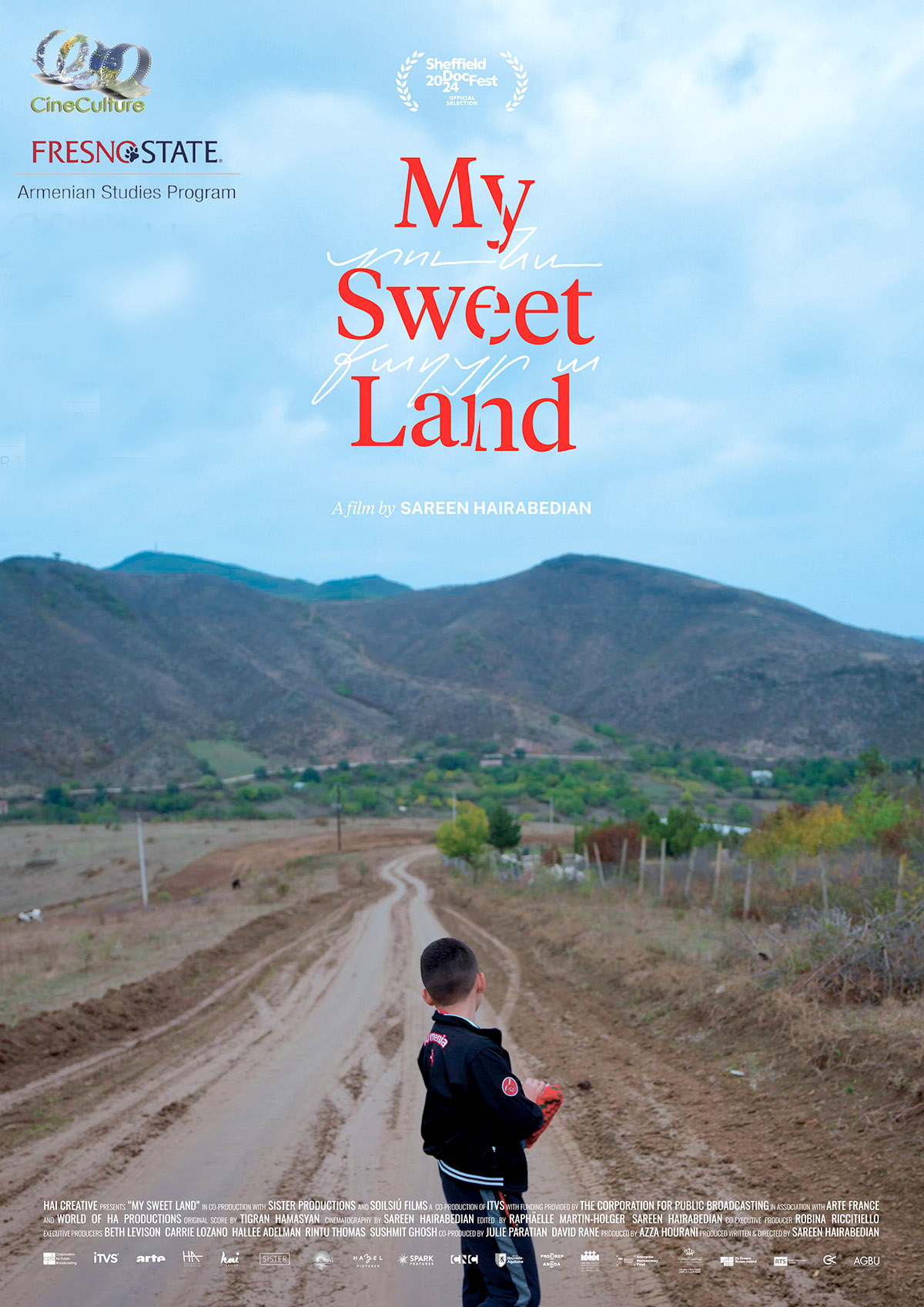 Rachel Yepremian-Owens
Rachel Yepremian-Owens
Staff Writer
“What is so sweet in this land that we continue to come back?” said Vrej’s grandmother. It was a question she constantly asked herself and her family members and was a central focus of the film “My Sweet Land.”
The award-winning documentary “My Sweet Land” was screened before a large audience at 5:30pm on Friday, April 25, through the collaboration of the Armenian Studies Program and the CineCulture program at Fresno State.
The film was directed and produced by Sareen Hairabedian, a 2023 Creative Armenia-AGBU Fellow and filmmaker. The documentary follows the story of 11-year-old Vrej and his family as they are forced to pick up and flee to Armenia from their Artsakh (Nagorno-Karabakh) home at the start of the 2020 Artsakh-Azerbaijan war.
Vrej is a charismatic young boy who dreams of growing up and becoming a dentist so he can one day return to his home village of Martakert and help the people of the villages. Artsakh is Vrej’s “sweet land.”
He cherishes the region, the people, the history, and his home village. However, as he walks around the mountainous terrain of the region, he sees mines from past wars, unrecognizable attributes that he never would have imagined his land could possess, but still radiates so much beauty in ways indescribable.
Hairabedian’s first time visiting the Nagorno-Karabakh region took place in 2018. She was passionate and determined to tell the story of Artsakh; she wanted to observe and document the ways the children in Artsakh were growing up.
From the ways that they played, to their education systems, to their home life, it was a story worth telling.
Having come in 2018 with photo reference of a mass wedding of 700 couples that took place in Artsakh, Hairabedian saw several families that she had the privilege of eventually meeting and being able to connect with. Vrej and his family was one of them, to whom she felt the deepest connection.
By beginning to gain the trust of his grandmother and working over the years to film their lives and unique story, she was able to gain the family’s trust and be welcomed into their home. Hairabedian continued to film with Vrej’s family until the 2022 December blockade took place.
Vrej had a captivating and relatable personality. He radiated a character of resilience and strength. He would carry the weight of Artsakh on his shoulders if he could for the region not to perish into history.
Vrej and his family had an “expected” experience, but also one they weren’t necessarily prepared for. War erupted, causing him and his family to be forced to flee to Armenia, and as Vrej’s father was a soldier in the military, they waited impatiently for the day when victory would come.
Unfortunately, for little Vrej who simply wanted to see his small, but mighty region rejoice in victory, that day never came because the Armenians lost the war. Villages upon villages were destroyed, but their family’s village of Martakert survived.
As they returned to Martakert after the ceasefire, they began the process of putting their life in Artsakh back together.
In school, Vrej and his fellow classmates attended camps that taught the young children basic war survival skills, sleeping in bunks, how to carry weapons and how to remain composure when in the midst of a war zone, come the day they would have to defend Artsakh.
Communities like these have no other option. People like Vrej and his family don’t know how to live any other life. This is their place and these are their people.

During the Zoom discussion with Hairabedian after the screening, various audience members expressed their reflections and also asked questions about the film.
Hairabedian addressed that her family history also had experiences of location dis-placement.
They were displaced from Van, Western Armenian to Palestine, Lebanon and eventually Jordan. For this reason, she knows how it feels to experience such a thing and wanted to be sure she did justice in telling Vrej and his family’s story.
“I think it’s so important that we take the time and humanize and really see what happens behind these closed doors and what changes and the price that is being paid by the most vulnerable victims of war and conflict,” said Hairabedian.
Despite political pressures from society and media, Hairabedian remains persistent in her efforts to have her film reach as many platforms as possible.
Armenia, specifically Artsakh, is not a major focus of the national and international media. Armenians have seen proof of this time and time again.
This is why Hairabedian is making history in her creative field of filmmaking. Her brand, Hai Creative, radiates the pride that is being an Armenian and the resilience it takes to be brave and bold like Vrej.
 Hye Sharzhoom Armenian Action
Hye Sharzhoom Armenian Action